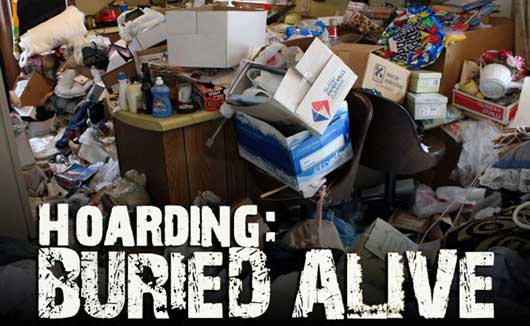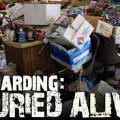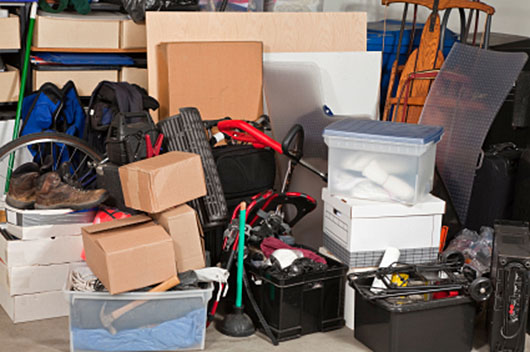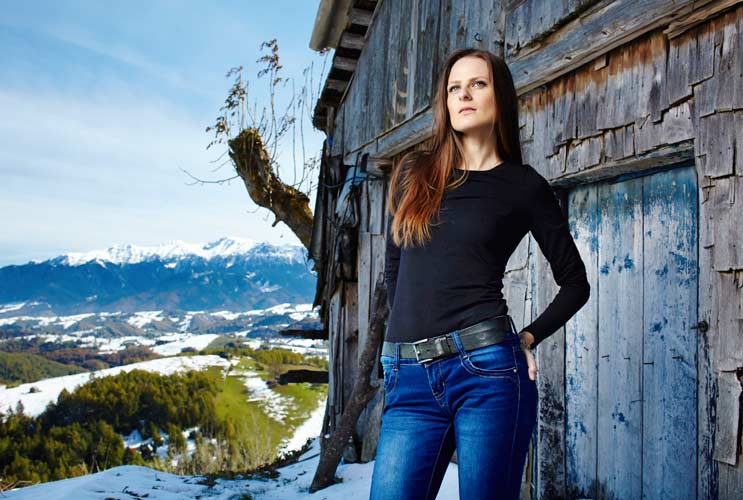
I confess, I’m a bit of a pack rat. I don’t hide this from anyone and it’s no secret that I have a natural tendency to stockpile and not get rid of completely unnecessary items in my life. While some people come by this through life experience or trauma, for me it’s purely genetic. Being a pack rat runs in my family and I’m working hard to fight the hoarding genes so as to avoid someday being featured on the now sensationalized television show, Hoarding: Buried Alive.
GROWING UP IN A PACK RAT FAMILY
I vividly recall my father’s top dresser drawer from my childhood. It was always fun for me to sort through the old belts, watches, buttons, cuff links, cologne, pocket squares, pens, coins, jewelry boxes, birthday cards, and other trinkets. As an adult, I look back and recognize that my mother was responsible for designating this drawer as the only space his inner pack rat was allowed to come out and play. Safely contained in one dresser drawer were the tendencies he had inherited from his parents, a pair of true hoarders.
My grandparents’ home smelled of dust and moth balls along with that earthy, mustiness that fills any and every old house in Pennsylvania. Even as children, when we walked through the door we’d have to turn sideways in order to make it down the hallway, boxes stacked floor to ceiling on either side, to get to the living space of the house. When we’d eat a meal together, we sat on top of binders, papers, and books that lay on chairs. Our paper plates rested on place mats under which were newspapers, medical journals (my grandfather was a family physician), and photo albums that covered the kitchen table. My younger brother and I loved poring over items that were generations old, tucked away in corners, drawers, and buried underneath years of National Geographic magazines. On the way home to our parents’, we’d all have allergy attacks and share stories of spotted silverfish, spiders, and items we’d spotted that we thought might be valuable—if only they weren’t broken, half-used, or disintegrating from years of neglect.
We knew my grandparents had a problem, which is probably why my mother took such care in helping my father to restrain himself, keeping only the items that would fit in his one dresser drawer. As for me, I thought having a junk drawer was normal but I quickly learned that I too had to limit myself to a small space so as not to unleash my pack rat instincts.
Read Related: Clean the Clutter & Cut the Stress: Tips from Peter Walsh
WHEN DOES BEING A PACK RAT BECOME A PROBLEM?
When your life is negatively impacted by the amount of stuff you have accumulated and refuse to rid yourself of, you’re a pack rat—maybe even a hoarder—and you have a problem. My grandparents are a classic example of people who liked to save things, thinking they may come in handy or be worth something someday. They allowed the desire to hold onto every little thing “just in case” to take over their home and affect their relationships with their family. It was hard to visit them and it probably wasn’t all that safe for us kids either.
LEARNING TO LET GO OF STUFF
As for me, I have been through enough therapy and self-discovery to acknowledge when I’m starting to act like the pack rat I don’t want to be. Holding onto receipts that are serving no purpose—because I don’t need them for taxes nor will I use them to return an item—is a red flag for me. I also hold onto food containers to use them for storage later (jars from marinara sauce are perfect for holding lots of different dry pantry items!) and have to keep an eye on how many empty jars I’m storing for…nothing!
I try to be ruthless about once a year, purging the items in my home that I haven’t needed or wanted in the last twelve months. From my closet to my car, if I haven’t worn it, touched it, or wondered where it went off to in a year, it’s donated to a friend, family, or the local thrift store. I’m resisting that genetic predetermination to be a pack rat and I’m doing pretty well. As for my dad, he still has that top dresser drawer filled with junk, and I think that’s the way it will always stay.










